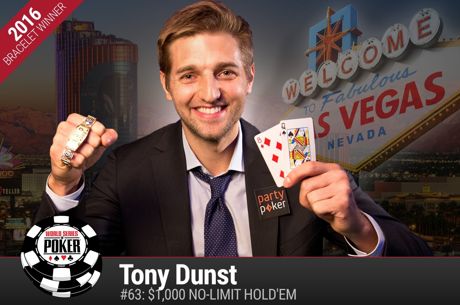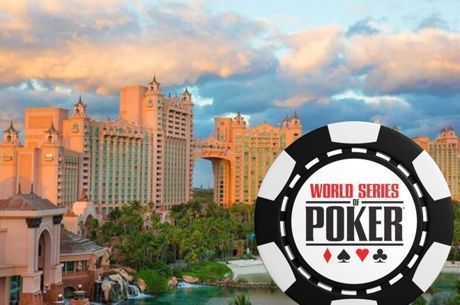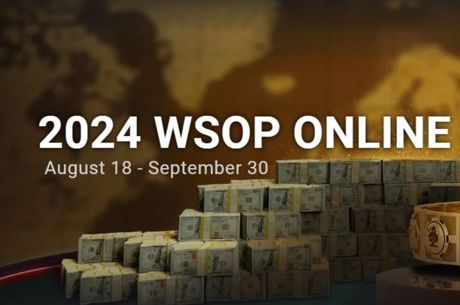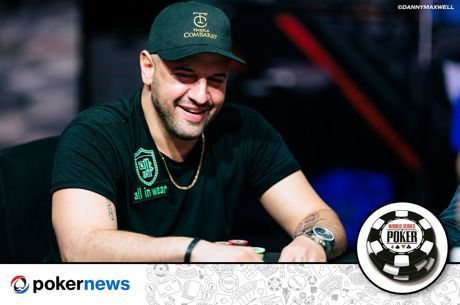WPT Focusing on Global Expansion, Player Experience
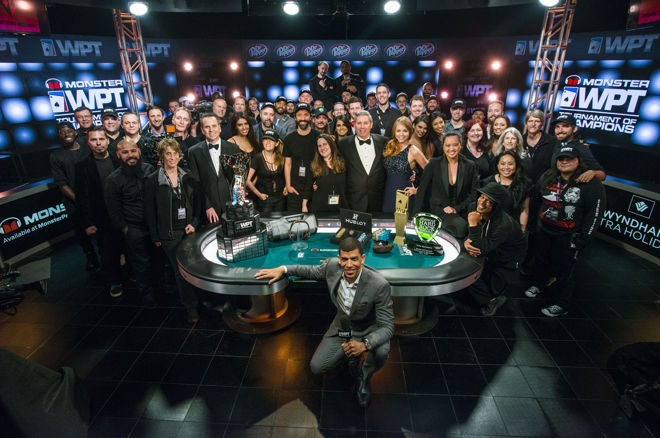
The World Poker Tour just wrapped up its 15th season, and it would be fair to call it one of the most successful in the history of the company.
The WPT hosted 20 main tour stops. It hit locations around the globe, starting in Canada and going to Amsterdam, Prague and the Caribbean islands, in addition to its myriad U.S. venues. Numbers were up almost across the board:
| Season | Total Entries | Entries Per Event | Total Prize Money |
|---|---|---|---|
| Season 14 | 11,699 | 584.95 | $49,924,973 |
| Season 15 | 12,536 | 626.8 | $54,201,345 |
Info courtesy of WPT
WPT Five Diamond, WPT Maryland Live!, WPT Borgata Winter Poker Open, WPT Fallsview and WPT Bay 101 Shooting Star all broke all-time attendance records. Considering the poker boom period peaked about a decade ago, that's no small feat. In fact, Season 15 drew more entries than any other WPT season, despite the fact that the tour holds fewer events than it once did.
Given all that, and with the season-ending Monster Tournament of Champions about to finish on April 9, it might have seemed a natural time for WPT brass to relax. A time to perhaps crack a cold beer, toast to the end of a long, grueling grind, and reflect on the professional successes of the past year.
Far from it, though. Instead, at a media forum held at Seminole Hard Rock, the future of the company dominated discussions.
The first topic of note and a theme throughout the 90-minute roundtable? Global expansion.
As it happens, the WPT has an individual whose job descriptions covers exactly that: Vice President of Global Tour Management's Angelica Hael.
She noted the huge strides that have already been made by the WPT within the past decade. The WPT, she said, had a presence in seven different countries in 2010. In 2017, that will grow to 18 different countries.
"I think it's a testament to the hard work of the team," she said.
For a while, she said the WPT may have gotten a little too aggressive, taking a "put a flag here" attitude to places where it made little financial sense to operate.
WPT CEO Adam Pliska echoed these thoughts and offered a specific example. Ten years ago, he said, the WPT made a foray into China that cost the company "millions."
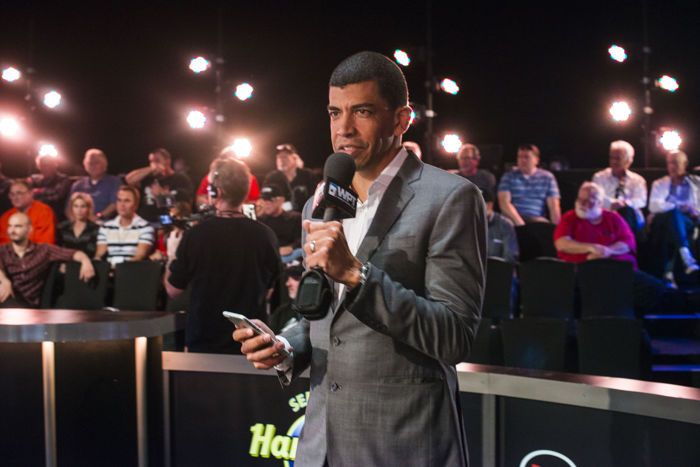
That didn't mean China wasn't a viable market. The WPT simply went about things the wrong way and at the wrong time. Days ago, the proverbial flag dove back into Chinese soil, as the company held the first main tour event there with WPT Beijing to kick off Season 16.
"I think the World Poker Tour's in a really good spot," said WPT Executive Tour Director Matt Savage in a separate interview with PokerNews. "I think global expansion is where we're at with WPT. We're trying to go down to Latin America, to Asia, to India."
Savage didn't quite say that the American market was saturated, but he definitely hinted toward that.
"Consolidation, I think, needs to happen quite a bit," he said. "When you have an event here and six other $1,500 events going on across the country, people are going to stay in their neighborhood.
"Some of the tours have fallen by the wayside, and I think that's obviously been good for the ones that are there. The strong are going to survive, and I think us being the most player-friendly is where we're focusing our attention, and I think it's working for us."
Catering to the players was one of the reasons WPT commentator Mike Sexton pushed hard for the 2016 debut of the Tournament of Champions. The WPT Champions Club held a certain amount of prestige, but the WPT wanted to present members with real, tangible rewards.
The Tournament of Champions gives winners from the current season a $15,000 seat and allows all past champions the opportunity to buy in rake-free. Considering the added goodies put into the pool from WPT sponsors, including extra cash and a brand-new Audi, the event offered quite a bit of value.
Nevertheless, the Tournament of Champions isn't without detractors. Eternally vocal critic Allen Kessler slammed the event's 66 player turnout on Twitter, pining for a return to the old days of a season-ending WPT Championship.
Expect no such thing, Pliska said.
"If we invest in the TOC, every tournament we have gains equity," he said. "We will continue to invest in this and build this up."
Savage also expressed strong support. He added the WPT was looking into additional perks for Champions Club members like line passes to skip registration queues.
"I think by pushing the envelope and making it more player-friendly and special, more and more people are gonna want to get in," he said. "I think that us promoting our champions will further our brand and make it better for everyone."
And it's not just the former champions for whom the WPT seeks to roll out the red carpet. The company has invested heavily in grassroots poker, Pliska pointed out. Concurrent with WPT main tour events at SHR, the WPT hosted events for ClubWPT, its monthly membership poker game, and WPT League, its free-to-play live social poker game.

Last year, the WPT also launched its online social poker platform, PlayWPT.
The WPT is clearly all in on growing the game, as the recreational player is the lifeblood of the industry.
"For the first time, the future of the WPT is not dependent on real-money gaming," he said. "This is allowing us to have a longer vision. Social gaming is a commercial for the poker industry. We need more of that mix."
Having done the rounds meeting with the grassroots players, Pliska came away impressed with their collective enthusiasm for poker.
"They're the most encouraging people in the world to talk to," he said. "They're happy. They're excited."
Those running the show for the WPT are looking to match that excitement with their visions for the future, ensuring the WPT maintains its position as one of the leading brands in the industry.
Photos courtesy of WPT

